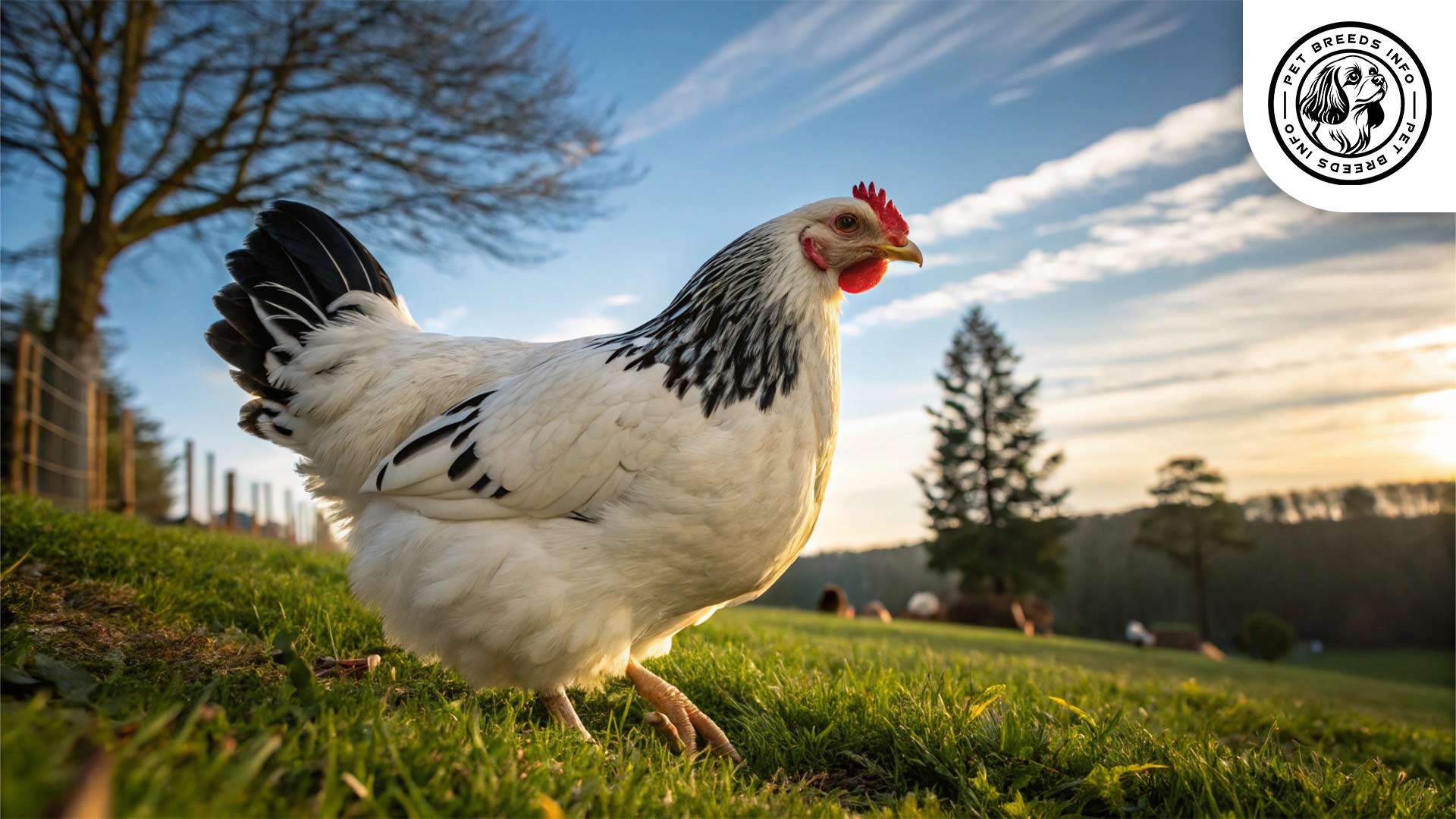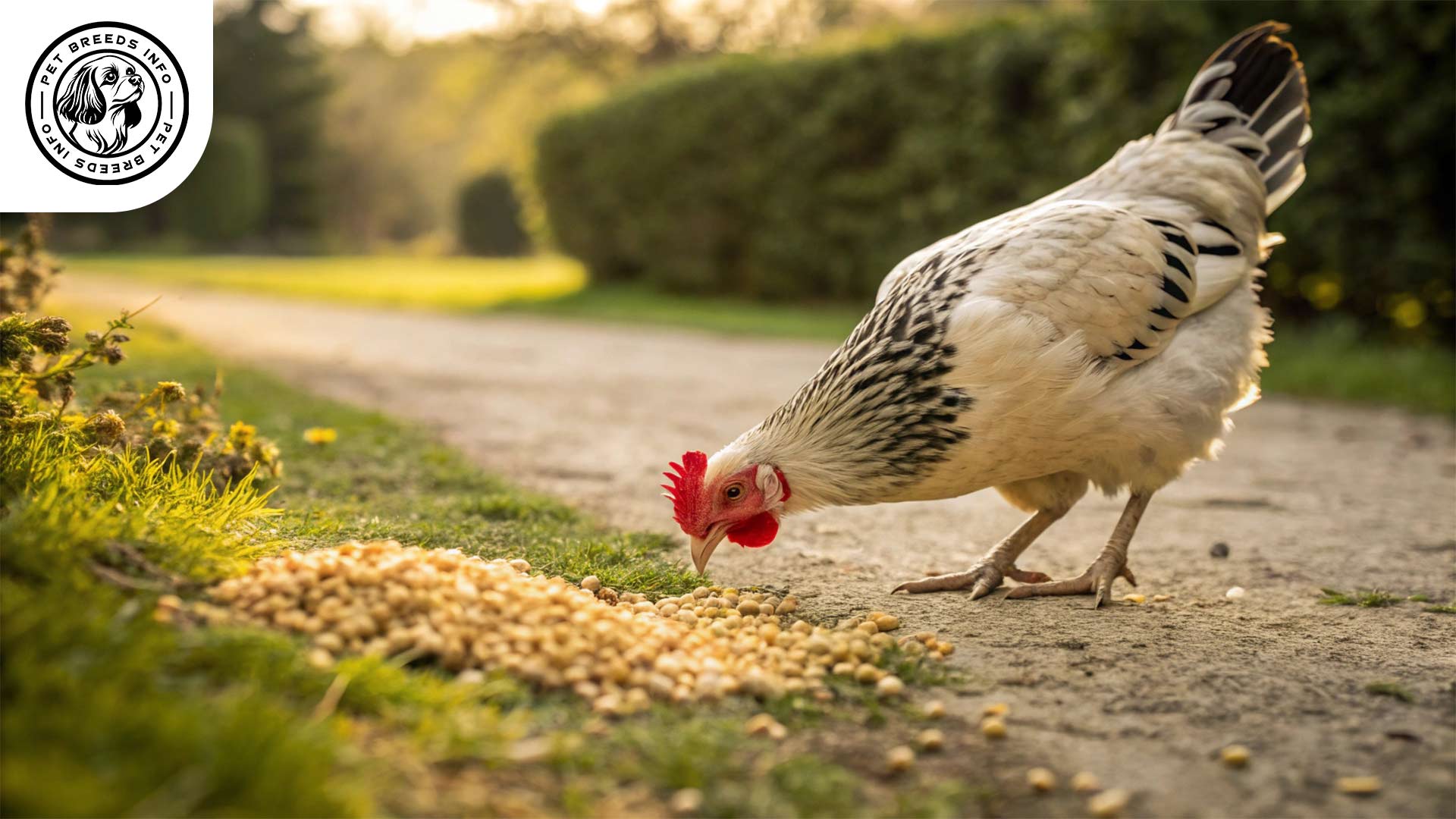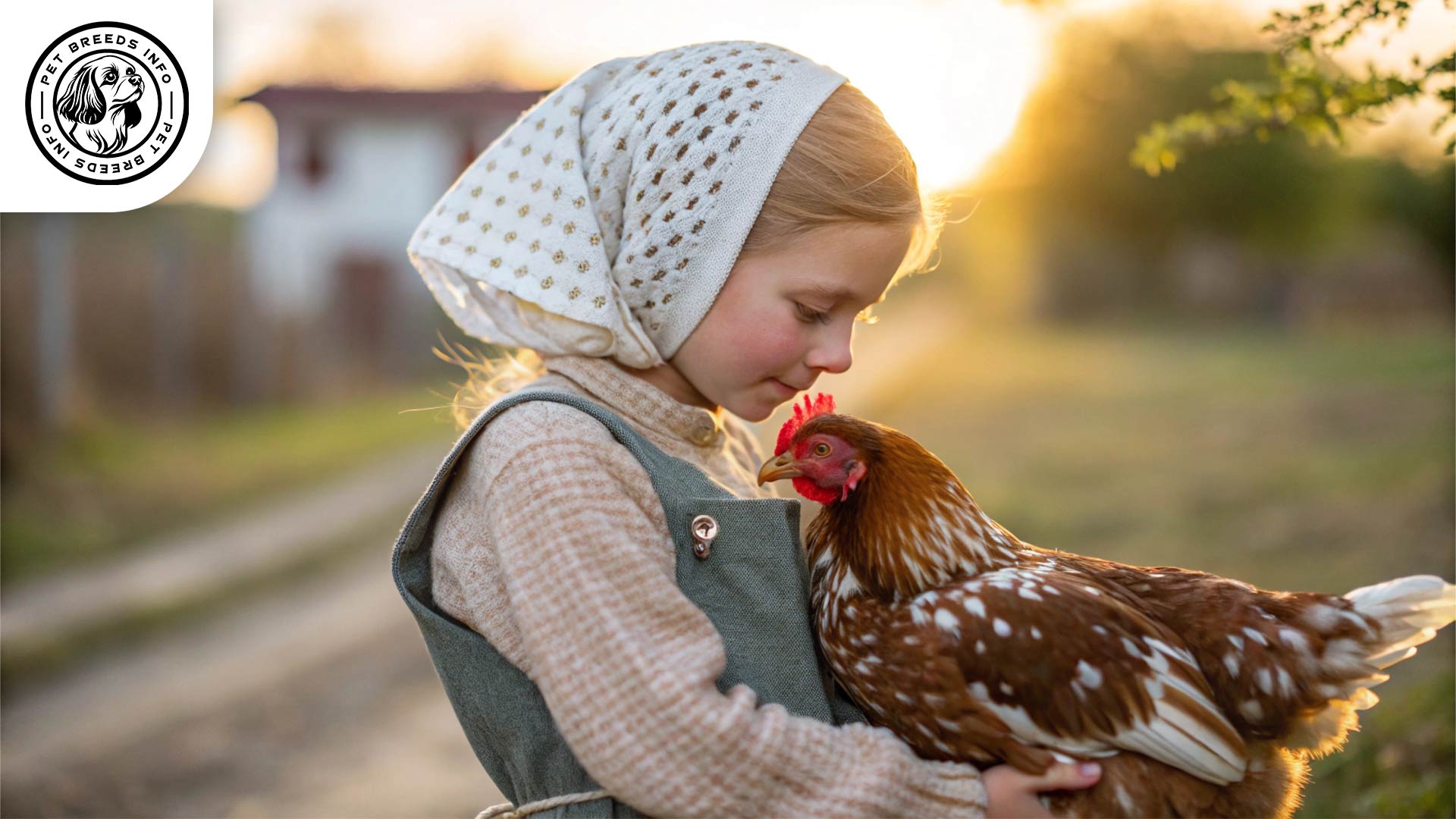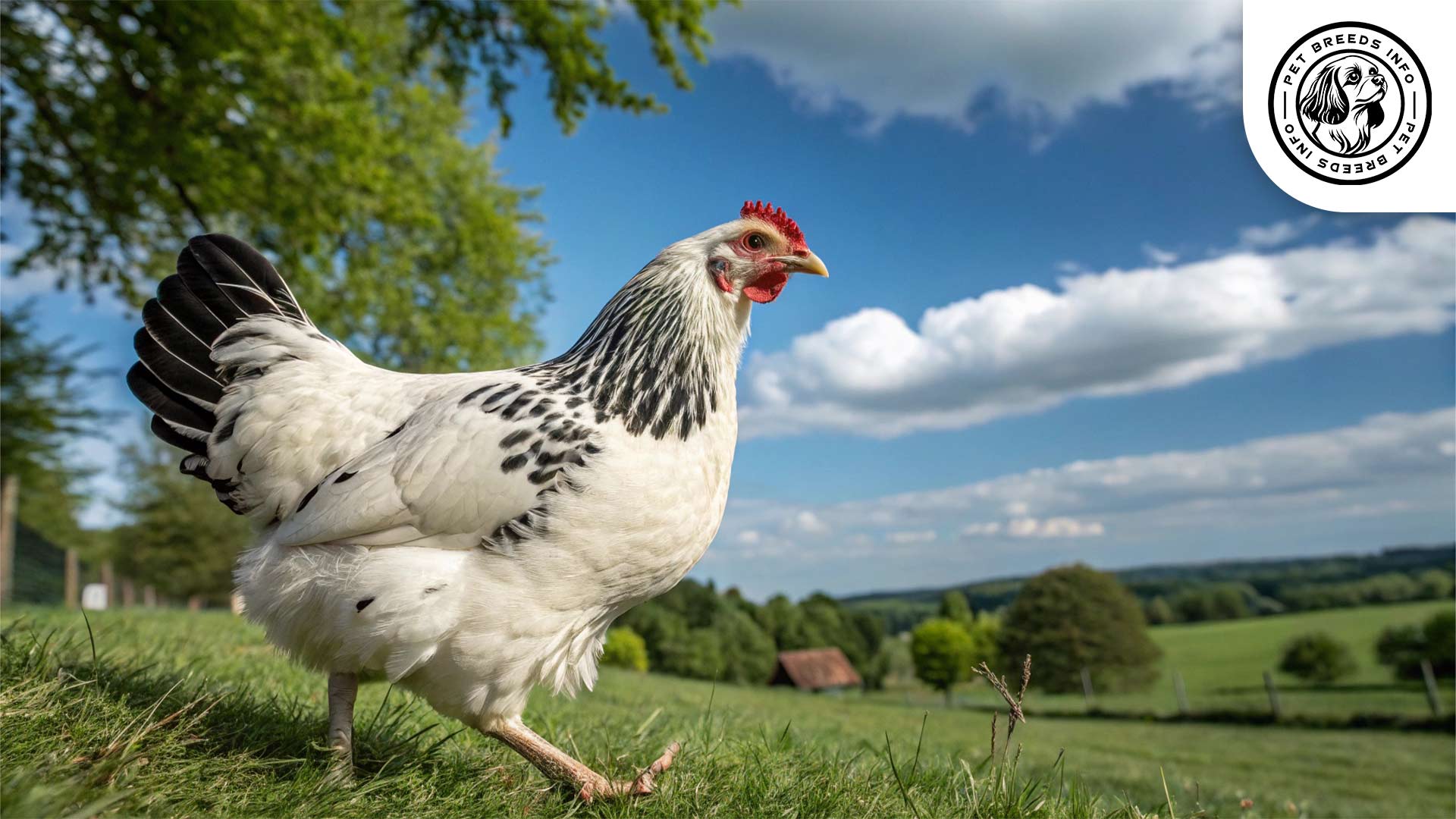Sussex Chicken Breed: Personality, Lifespan, Food & Care
General Introduction of the Breed
The Sussex Chicken is a popular and versatile breed of domestic chicken known for its excellent egg production, calm temperament, and beautiful plumage. This breed originates from England and has been around since the early 19th century. It has played an essential role in the development of many other poultry breeds.
Alternative names for this breed include simply “Sussex,” and it is widely recognized among backyard chicken keepers and farmers for its dual-purpose utility in egg and meat production.
Table of Contents
| Common Name | Sussex Chicken |
| Scientific Name | Gallus gallus domesticus |
| Origin | England |
| Size | Medium to large |
| Lifespan | 6–8 years |
| Colors | Light, Speckled, Red, Buff, White, Silver |
| Talking Ability | Low (gentle clucking) |
| Noise Level | Low to moderate |
| Social Behavior | Friendly, calm, good with people and chickens |
Physical Characteristics
Sussex Chickens are medium to large-sized birds. Males typically weigh between 4-4.5 kg, while females range from 3-3.5 kg. The breed has a well-rounded and robust body, making it an excellent choice for both egg laying and meat production.
They come in several color variations, including Light, Speckled, Red, Buff, White, and Silver. The most popular variety is the Light Sussex, which features a striking white body with black accents on the neck and tail.
Sussex Chickens have red, broad, and well-developed combs, wattles, and earlobes. Their eyes are typically a rich and deep red or orange hue. Their tails are slightly upright and fanned out, complementing their elegant yet sturdy build.

Personality and Temperament
Sussex Chickens are known for their docile and friendly temperament. They are highly intelligent and easy to handle, making them an excellent choice for beginner chicken keepers. They quickly learn their surroundings and enjoy human interaction.
This breed has a moderate energy level. While they enjoy free-ranging, they can also adapt well to confined spaces as long as they are provided with enough opportunities to forage and explore.
They are very social birds and integrate well with other chickens. They are also suitable for families with children, as they are gentle and tolerant. Some individuals even develop a close bond with their owners and can be quite affectionate.
Care and Maintenance Requirements
Sussex Chickens require a moderate amount of exercise. They thrive best in a free-range or spacious coop environment where they can forage for insects and greens. They are adaptable to various housing conditions, making them ideal for both backyard flocks and larger farm settings.
Grooming is relatively simple for this breed. They require regular dust baths to maintain feather health and prevent parasites. Checking for mites and lice periodically is essential. Their nails and beaks may need occasional trimming if they do not wear down naturally.
These chickens are hardy and can tolerate cold weather well due to their dense plumage. However, in extremely hot climates, they require ample shade and fresh water to stay comfortable.
Diet and Nutrition
Sussex Chickens thrive on a balanced diet consisting of high-quality commercial poultry feed supplemented with fresh greens, grains, and natural foraging. They enjoy kitchen scraps such as vegetables, fruits, and small amounts of protein-rich foods like mealworms.
Foods to avoid include chocolate, avocado, salty or processed foods, and anything moldy. Clean, fresh water should always be available.
Read More: Violet-eared Waxbill Bird
Layer feed is recommended for hens to ensure optimal egg production. On average, adult Sussex Chickens should receive around 110-140 grams of feed per day.

Health and Common Medical Issues
This breed is generally healthy and robust, but they can be prone to common poultry diseases such as respiratory infections, mites, and lice infestations.
Some Sussex Chickens may develop Marek’s disease, coccidiosis, or bumblefoot if not kept in a clean and dry environment. Routine health checks, vaccinations, and proper biosecurity measures help keep them healthy.
The average lifespan of a Sussex Chicken ranges from 6-8 years, though some may live longer with excellent care.
Training and Behavior Management
Sussex Chickens are highly trainable and can easily learn routines such as returning to the coop at night. Food rewards are an effective way to encourage positive behaviors.
Read More: Khaki Campbell Duck
Establishing a consistent feeding and free-ranging routine helps in managing their behavior. They can be trained to recognize their owners and respond to calls, especially when food is involved.
Interaction with Other Animals and Humans
Sussex Chickens are highly social and do well in mixed-breed flocks. They get along well with other chickens and are not overly aggressive.
They are an excellent choice for families with children, as they are gentle and tolerant of handling. They also form bonds with their owners, often following them around when given the chance.
Due to their friendly and non-aggressive temperament, they are better suited for peaceful, integrated flocks rather than highly competitive or aggressive poultry environments.

Price and Availability
The price of Sussex Chickens varies based on their color variety, breeder reputation, and location. On average, chicks are available for $3-$10 each, while mature pullets or laying hens can range from $20-$50.
They are widely available through hatcheries, local farm stores, and poultry breeders. Always ensure you purchase from reputable sources to get healthy and well-bred birds.
Conclusion and Final Thoughts
The Sussex Chicken is an excellent breed for both novice and experienced poultry keepers. It offers a perfect balance of egg production, friendly temperament, and adaptability. Whether kept for eggs, meat, or as a backyard companion, this breed is a fantastic addition to any flock.
Read More: West African Silverbill Bird
Their low maintenance requirements and hardy nature make them suitable for various climates and housing setups. If you are looking for a reliable, friendly, and productive chicken breed, the Sussex Chicken is an ideal choice.
FAQ
Are Sussex Chickens good egg layers?
Yes, they lay up to 250 eggs per year.
Do Sussex Chickens get along with other breeds?
Yes, they’re calm and sociable in mixed flocks.
Can Sussex Chickens live in a backyard coop?
Definitely! They’re perfect for backyard or small farms.
Are they beginner-friendly birds?
Absolutely. Their docile nature is ideal for new keepers.





